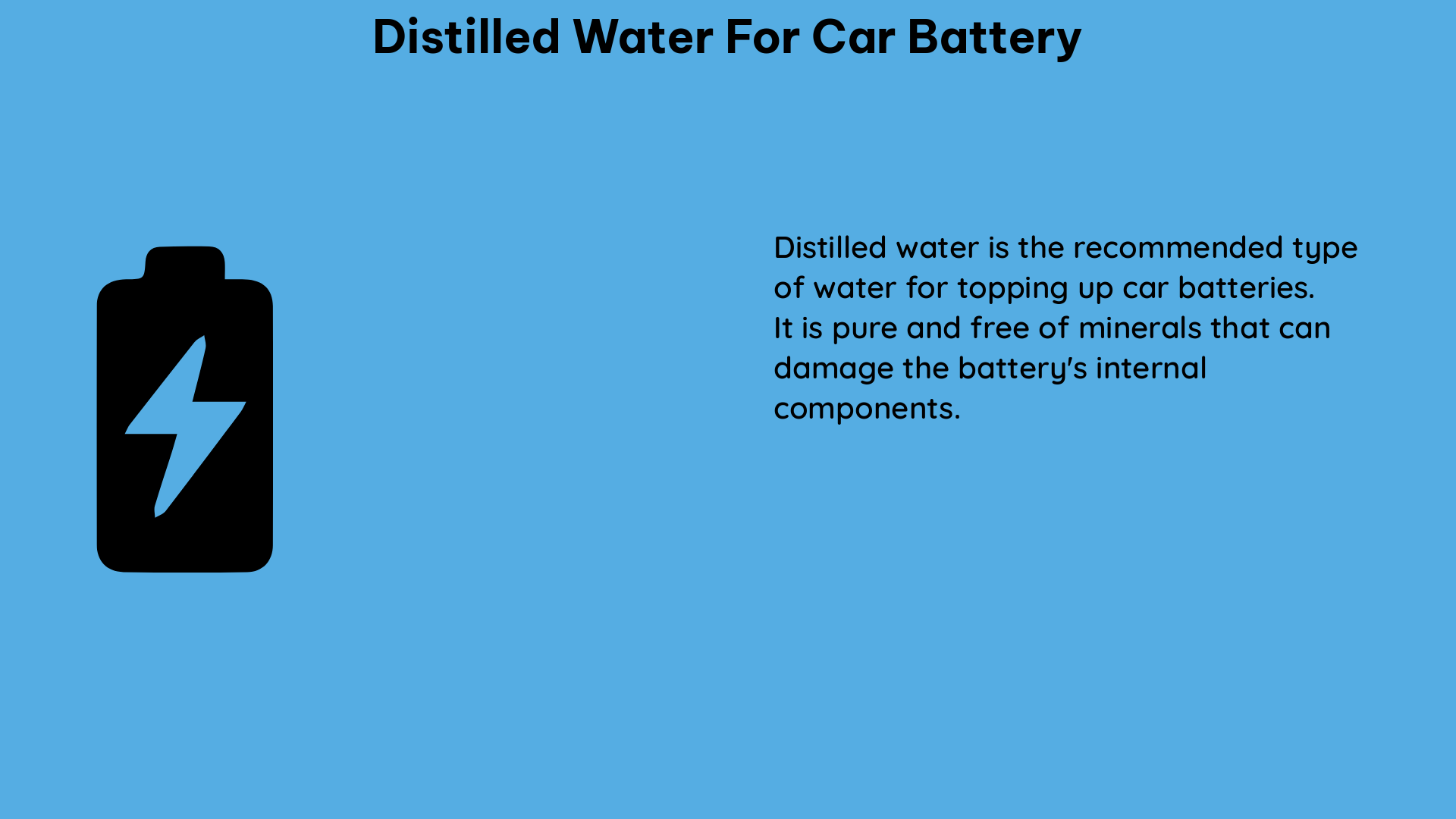Distilled water is a crucial component in maintaining the health and longevity of car batteries, particularly those that are lead-acid based. When using distilled water for this purpose, it’s important to ensure that it is as pure as possible, as even minor impurities can have a significant impact on battery performance and lifespan.
Understanding the Importance of Purity
Contrary to popular belief, “distilled” water does not necessarily guarantee a high level of purity. As mentioned in a forum post, the thread starter found out the hard way that “Distilled” water doesn’t guarantee any level of purity, and that it’s just been “Distilled.” This highlights the importance of being more cautious when selecting distilled water for use in lead-acid (LA) or sealed lead-acid (SLA) batteries.
To measure the purity of distilled water for use in car batteries, a TDS (Total Dissolved Solids) meter can be used to check the PPM (parts per million) of any impurities. According to industry experts, the PPM should be no greater than 5 PPM for optimal battery performance. Impurities in the water can lead to reduced battery capacity and, in some cases, even cause batteries to become junk.
Maintaining the Appropriate Water Level

In addition to using pure distilled water, it’s also crucial to ensure that the water level in the battery is maintained at an appropriate level. As stated in a Reddit post, with any lead battery, you should always keep all 6 cells topped up with water. Using distilled water is preferred, but even tap water is better than nothing.
It’s important to top up the cells with water before charging, as charging them when they’re less than full can be suboptimal and, at worst, could split the H2O water molecule and cause outgassing, breakdown the acid, overheat the cell(s), and/or permanently damage the battery.
Checking the Electrolyte Specific Gravity
When checking the acid levels of a battery, it’s possible to test the specific gravity of the electrolyte using a hydrometer or densitometer. According to battery experts, the specific gravity of the electrolyte should be around 30%-35% sulfuric acid, which assumes a charged battery where the acid is in the electrolyte.
If the specific gravity you measure is lower than the recommended range, it may be necessary to drain the electrolyte and replace it with fresh acid. This can help ensure that the battery is operating at optimal performance and prevent potential issues.
DIY Guide for Distilled Water in Car Batteries
- Purchasing Distilled Water: Purchase distilled water from a reputable source, ensuring that it has a PPM of no greater than 5.
- Topping Up the Cells: Top up the cells with the distilled water before charging, ensuring that the water level is maintained at an appropriate level.
- Checking Specific Gravity: Use a hydrometer or densitometer to check the specific gravity of the electrolyte, ensuring that it is around 30%-35% sulfuric acid (assuming a charged battery).
- Replacing Electrolyte: If the specific gravity is lower than the recommended range, drain the electrolyte and replace it with fresh acid.
By following these guidelines, you can ensure that your car battery is receiving the proper care and maintenance, extending its lifespan and ensuring optimal performance.
Technical Specifications
Distilled Water Purity:
– PPM (parts per million) of no greater than 5
Electrolyte Specific Gravity:
– Around 30%-35% sulfuric acid (assumes a charged battery where the acid is in the electrolyte)
References
- Distilled Water Not So Distilled, Killed My Batteries
- Additives to Boost Flooded Lead-Acid
- Battery Acid, Lead, Distilled Water

The lambdageeks.com Core SME Team is a group of experienced subject matter experts from diverse scientific and technical fields including Physics, Chemistry, Technology,Electronics & Electrical Engineering, Automotive, Mechanical Engineering. Our team collaborates to create high-quality, well-researched articles on a wide range of science and technology topics for the lambdageeks.com website.
All Our Senior SME are having more than 7 Years of experience in the respective fields . They are either Working Industry Professionals or assocaited With different Universities. Refer Our Authors Page to get to know About our Core SMEs.